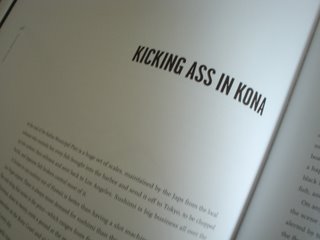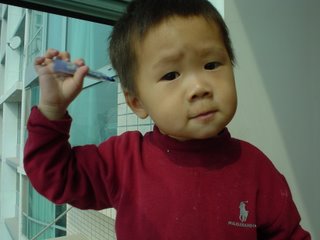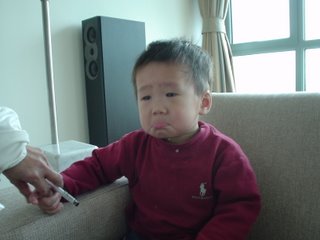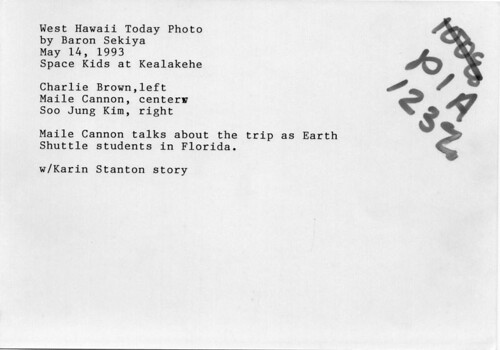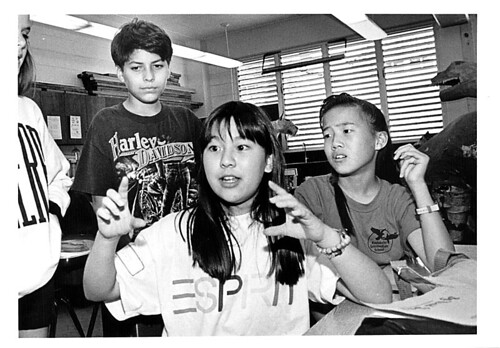Life remains status quo: work, study, work, study, worry. As usual, I'm coming down with something (the weather is changing unusually rapid this year--I was roasting two weeks ago and now I'm well under my duvet at night) and as usual, I am consuming copious amounts of smelly Chinese herbs. I am taking the written portion of the GRE Friday morning, and I will write more about my reasons for that in a later post.
Today, all I have to offer is a very interesting article about China and its growing role in contemporary world order. It's lengthy, true, but well worth the read. Here it is in its entirety.
---
The World According to China
By JAMES TRAUB
Published: September 3, 2006
In Late July, as the United Nations Security Council argued long into the night over the wording of a so-called presidential statement castigating Israel for the bombing attack that killed four U.N. observers in southern Lebanon, Wang Guangya, the Chinese ambassador, blew his stack. This was almost unprecedented: Wang, a veteran diplomat, typically comports himself with unnerving calm. But one of the four fatalities had been Chinese, and Wang had grown increasingly frustrated with the refusal of the United States to condemn Israel outright for the bombing. Worse still, the United States was represented not by Ambassador John Bolton but by a junior diplomat, a breach of etiquette that Wang apparently took to be a calculated insult.
Without naming any countries — he lost his temper, not his grip — Wang lashed out at “a tyranny of the minority in the council” and vowed that there would be “implications for future discussions” on other subjects. Once the meeting ended, Wang planted himself before the U.N. beat reporters and engaged in 10 minutes of robust public diplomacy, complaining that the presidential statement had been “watered down,” observing in several different formulations that “we have to take into account the concerns of other countries” and predicting that the “frustration” his country felt “will affect working relations somewhat.”
It was a delicately calibrated performance. In an earlier era, when the People’s Republic of China tended to conduct diplomacy by tantrum, this might have been the signal for a real breach. But China cares too much about the international order for such revolutionary shenanigans.
Actually, in an earlier era Chinese nationals would not have served in an observer mission in Lebanon, and the People’s Republic would have taken a pass on the whole subject. But China now aspires to play an active role on the global stage, which is why it sends skilled diplomats like Wang Guangya to the U.N. That’s the good news. The bad news is that China’s view of “the international order” is very different from that of the United States, or of the West, and has led it to frustrate much of the agenda that makes the U.N. worth caring about. The People’s Republic has used its position as a permanent, veto-bearing member of the Security Council to protect abusive regimes with which it is on friendly terms, including those of Sudan, Zimbabwe, Eritrea, Myanmar and North Korea. And in the showdown with Iran that is now consuming the Security Council, and indeed the West itself, China is prepared to play the role of spoiler, blocking attempts to levy sanctions against the intransigent regime in Tehran.
It’s a truism that the Security Council can function only insofar as the United States lets it. The adage may soon be applied to China as well.
t was only in 1971 that the People’s Republic of China supplanted Taiwan as the representative of China in the United Nations. During the remaining years of the cold war, the hermetic Communist regime was generally content to follow the lead of the Soviet Union. Little changed even after the fall of the Berlin Wall: China’s permanent representative in the early 90’s, Li Daoyu, was known around the U.N. as Ambassador Look Out the Window. The Chinese stirred to action only in order to block peacekeeping missions to countries that had been so foolish as to recognize Taiwan.
Beijing sleeps no longer. The astonishing growth of China’s economy has made it a global force, and the accompanying need for resources has pushed it to forge new ties throughout Asia, Africa and Latin America. The old revolutionary ardor is gone, and China surveys the world with increasing pragmatism and confidence. China is now a status quo power — “an exporter of good will and consumer durables instead of revolution and weapons,” as David Shambaugh, a China scholar at George Washington University, remarked in a recent essay. Unlike the United States and the West generally, China views the current global situation as fundamentally benign and malleable — a setting conducive to diplomacy.
China has chosen to enmesh itself in global bodies like the World Trade Organization, regional groupings like the six-member, security-oriented Shanghai Cooperation Organization and a vast range of bilateral partnerships. China has begun routinely signing arms-control agreements and antiterrorism conventions. And it has begun playing a more active role at the U.N., contributing troops — almost all of whom provide medical or engineering services rather than front-line patrolling — as well as policemen to U.N. peacekeeping operations.
Wang Guangya, at 56, is a senior member of a new generation of Chinese diplomats vastly more sophisticated and better educated than the party ideologues of old. His English is quite good, and he so relishes speaking to the U.N. press corps that he sometimes keeps answering questions even as he edges away from the pack while graciously thanking the reporters. Still, he doesn’t often attend diplomatic functions, and the occasional dinner in his Trump Tower apartment is normally limited to Asian diplomats. Earlier this summer, I became the first Western reporter to whom he agreed to speak at length.
Wang greeted me in a cheerless reception room in the Chinese mission and invited me to sit parallel to him, as though we were a pair of notables at a reviewing stand. (I took a corner chair instead.) The embassy spokesman and a political counselor seated themselves at a respectful distance across the room. At first the ambassador dutifully recited China’s history at the U.N. But once we got on subjects that exercised him, like Japan’s bid for Security Council membership, he dispensed with the abstractions and assumed the forthright and confident manner that seems natural to him. Throughout our conversation, Wang chain-smoked Chinese cigarettes — Zhonghuas — a habit that had turned his teeth slightly brown.
Wang is bespectacled and slight and has little of the artful smoothness of the more Westernized Asian diplomats. He grew up in Shanghai, the son of a worker, he says, with a low-level position in the Communist Party. Wang graduated from high school in the midst of the Cultural Revolution and along with tens of millions of other Chinese was sent out to the countryside for “re-education.” But after President Richard Nixon’s visit to China in 1972, the leadership recognized that it needed trained officials to exploit the new opening to the West. Wang passed a test that gained him entry to one of the country’s 11 foreign-language schools. In 1974, he was selected as part of a group of 140 to go to England for further study, making him among the very first citizens of postrevolutionary China to receive a Western education. “You think it’s a good thing or a bad thing?” Wang asked me, with a disarming grin.
Apparently, it was a good thing. At the London School of Economics, Wang met Cong Jun, a student from the Beijing foreign-language school and the daughter of Chen Yi, one of Mao’s great comrades. They married soon thereafter. (Cong Jun now works as a minister counselor in the mission and has served as co-president, with the wife of the British ambassador, Emyr Jones Parry, of a discussion group called the Women’s International Forum.) In 1977 Wang was sent to New York as a junior diplomat and stayed for six years. He returned as a political counselor in 1988, remaining until 1992. He became director of international-organizations policy in the Foreign Ministry, ultimately rising to the position of vice foreign minister before returning to New York as ambassador in 2003. Wang is considered the favored candidate to replace China’s foreign minister, Li Zhaoxing, when he steps down a year from now.
Wang is one of the U.N.’s most adroit diplomats. Ambassador Jones Parry says that his Chinese colleague has a trick he’s never seen anyone else perform: “In the council, he speaks in Chinese, but at the same time he listens to the English translation. Sometimes he pauses, and then he’ll switch into English to say something similar to the translation but nuanced from it.” Wang operates by suggestion, by indirection — often by silence. “They play a very skillful game at the U.N.,” says Vanu Gopala Menon, the Singaporean ambassador. “They make their opinions felt without much talking. They never come in first and make a statement. They always listen first and then make a statement which captures the main thrust of what the developing world wants.”
But the game the Chinese play virtually ensures the U.N.’s regular failure in the face of humanitarian crisis. Indeed, the combination of Wang’s deft diplomacy and China’s willingness to defend nations it does business with from allegations of even the grossest abuse has made a mockery of all the pious exclamations of “never again” that came in the wake of the Security Council’s passive response to Rwanda’s genocide in 1994. The most notorious example of China’s new activism in this regard is Darfur. While none of the major powers, with the intermittent exception of the United States, have shown any appetite for robust action to protect the people of this Sudanese province from the atrocities visited upon them by the government and its proxy force, known as janjaweed, the Chinese, who buy much of the oil Sudan exports, have appointed themselves Khartoum’s chief protector.
China first worked to keep the issue of Darfur off the council agenda when both Kofi Annan and Jan Egeland, the U.N.’s humanitarian coordinator, tried to mount a publicity campaign in early 2004. When this failed and Egeland publicly described the horrors there, Wang — along with the ambassador of Pakistan, a regular ally — diluted the ensuing press statement so that the council simply called on “the parties concerned to fully cooperate in order to address the grave situation prevailing in the region.” In the summer, after Congress had declared the ruthless assault on unarmed villagers “genocide,” China vowed to veto an American resolution threatening (not even imposing) sanctions against Khartoum.
And yet, according to Munir Akram, the ambassador of Pakistan: “China was not nearly as active on Darfur as people think. The proposals came from us or from Algeria.” The Islamic countries then serving on the council, as well as several African nations, considered any interference in Sudan’s affairs a violation of its national sovereignty, even though the citizens being abused were Islamic and African. Wang was more circumspect. At moments of friction, according to a Western diplomat, he would quietly insist, “You cannot alienate the Sudan government; without them, the U.N. mission will fail.” Akram is the kind of bombastic figure who suits Chinese purposes to a tee. “Their national style is different from the style of other people, including India and Pakistan,” as Akram puts it. “We are an oral people; the Chinese are not. They make their position clear, and they stand by it.”
And then, when it no longer suits their purposes, they change their position. Several years ago, China joined India in principled repudiation of the chlorofluorocarbon reductions mandated by the Montreal Protocol. But when the international community offered to pay for the technology needed to reduce emissions, China decided that global regulation of pollution did not, in fact, constitute a violation of national sovereignty, leaving the Indians all alone in their principled opposition. On Darfur, as well, China has seen the virtue of bending before the wind, if ever so slightly. As the hopelessly overmatched troops of the African Union failed to stem atrocities throughout 2005, China (along with Russia) continued to block a resolution authorizing a U.N. peacekeeping force. Then this past May, the Sudanese regime and one of the rebel armies signed a cease-fire pact, increasing the pressure for U.N. intervention. China’s position was looking increasingly untenable. And so Beijing agreed to withhold its veto from — though not actually endorse — a resolution authorizing a U.N. military-planning mission.
The great issue that divides the U.N. is no longer Communism versus capitalism, as it once was; it is sovereignty. Ever since the catastrophes of Bosnia and Rwanda, and increasingly in recent years, the Security Council has been asked to defend individuals against an abusive state. When critics in the West deride the U.N. as a failed institution, they almost always mean that the Security Council cannot find the will to do so, whether through intervention, sanctions or merely opprobrium. But this failing is a Western preoccupation: most developing nations, with their history of colonial rule and often their wish to abuse their own citizens without interference, object to all such inroads on sovereign rights. And in China, where memory of “the century of humiliation” at the hands of Western imperialists runs deep — and where the state’s right to abuse its own citizens is not to be questioned — sovereignty has long been a fighting word. During the 90’s, the Chinese abstained on, or publicly criticized, key resolutions authorizing the use of force to dislodge Saddam Hussein from Kuwait and establishing or fortifying peacekeeping missions in Somalia, Bosnia, Rwanda and Haiti. China is now more flexible in practice, but the doctrine of absolute sovereign rights remains central to its foreign policy.
My conversations with Wang kept looping back to this fraught topic. “Each country has to provide the well-being of their own people,” Wang said to me. “In some countries there is a problem, where the protection of their own people is” — here the diplomatic diplomat searched for the right word — “neglected. The U.N. can come in a quiet way, providing help, providing advice. But the role to play is not to impose it when the government is functioning. Of course there are cases where you can say that the country is a failed country. But wherever there is a government, I think the best way to do it is by giving good advice wherever you can, tough way or soft way, to let the government pick up its main responsibility.”
China has, for example, engaged in some gentle prodding of Myanmar — the former Burma — whose authoritarian regime depends on Beijing for weapons and trade. But the generals who run the country have shown no signs of releasing their grip or of ending the house arrest of Daw Aung San Suu Kyi, the opposition leader and recipient of the Nobel Peace Prize. Nevertheless, Wang says that he has “firm” instructions to block a U.S. resolution, now circulating in draft form, that would condemn the regime and threaten sanctions. China does not feel that this issue belongs in the Security Council. “In our contact with the United States,” he says, “their argument is that of course they have the human rights problem, they have the problem of drugs, they have the problem of AIDS. And then may I ask: ‘The U.S. doesn’t have the problem of AIDS, doesn’t have the problem of human rights, doesn’t have the problem of drugs? Then you ask the Security Council to be involved?’ I don’t think that is the case.” I said that I didn’t think John Bolton would be much impressed by this claim of moral equivalency. Wang waved this away.
In another conversation, held a week later in the U.N.’s Delegates Lounge, where Wang blithely violated the no-smoking rules, the ambassador insisted that the right to exercise sovereignty free from outside interference was enshrined in international law. But, I asked, when the world’s heads of state, gathered at the U.N.’s 60th-anniversary summit last September, approved the principle of “the responsibility to protect,” didn’t this, too, become a matter of international law?
This was true, Wang conceded — even though China has strong reservations about the doctrine — “but you have to decide how to apply this.” And since this new obligation applied only to genocide or “massive systematic violations of human rights,” it had no bearing on Darfur. Wang had just returned from a Security Council visit to the region, where he had concluded that the situation was very complicated and that the government had been unfairly criticized. China still stood by Khartoum. After abstaining on the peacekeeping resolution, Wang had asked for the floor in order to reiterate China’s position that U.N. peacekeepers could deploy only with the government’s consent.
Unfortunately, I observed, President Omar Hassan el-Bashir of Sudan had just flatly rejected the proposed peacekeeping force.
The African Union “is doing a good job on the ground,” Wang insisted. “The U.N. force would be a good way to help them, but if in their judgment the Sudan government thinks the A.U. forces are enough, that is their decision.” And second, the Sudanese had agreed to disarm the janjaweed.
“And if they can’t?”
Wang ground a cigarette into his ashtray. “If you are not sure that it will not be successful, then why impose a solution on them before you prove that they will not be able to do it?”
hina has become so influential a country, such an object of imitation, respect and fear, that you can no longer talk about an “international community” that does not include it. The West has a profound interest in China’s development as a global power and its acceptance, however gradual and grudging, of the rules by which the West has defined global citizenship. As Mark Malloch Brown, the deputy secretary general of the U.N., puts it, “How much less intractable so many issues would be if China was as fully engaged in the management and leadership of the United Nations as so many Western nations are.” Malloch Brown takes the optimistic, or perhaps wishful, view that China will find itself inevitably adopting Western rules as it seeks to join the global club, arguing that “as soon as you start grappling with global issues, you find that things like human rights and development and legitimate government are things you come to care about as vital to international stability.”
You can see why a high-ranking U.N. official would wish for such a denouement. If, alternatively, China continues to insist that the Enlightenment principles enshrined in the U.N. Declaration of Human Rights are little more than a Western hobbyhorse, then the great issues will remain intractable, and they will be resolved elsewhere than the U.N. In recent years, both liberal interventionists and conservative unilateralists have begun to call for some new body, or new mechanism, that will not sit idly by during the next Darfur (or more problematically, the next Iraq). This new entity would not include obstructive nations like China and Russia. But excluding China from the world’s foremost decision-making body could have very grave consequences, since it might well rekindle the Middle Kingdom’s old sense of encirclement and exclusion. You’d have to save a great many lives to compensate for that kind of damage.
China plainly wishes to join the international community on its own terms. The People’s Republic is a singular entity, a world-class power almost wholly preoccupied with harnessing its internal energies and preventing domestic conflict. Unlike Russia, for example, China has little wish to use the power at its disposal, save to establish a harmonious environment for its “peaceful rise.” And in any case, China has progressed so rapidly from an insular and impoverished state to a confident and immensely influential one that it has not had time to figure out what to do with its power, or even fully to acknowledge it. China thus cares a very great deal about matters of little concern in the West — “territorial integrity,” for example — and very little about the burning issues in Washington, London and Paris. China has, for example, played almost no affirmative role in the reform debate that has exercised the U.N. over the last year. China is a member of the bloc of developing nations known as the Group of 77 — the group’s formal name is “the G77 plus China,” even though the 77 have grown to 131 — and it shares the organization’s view that the U.N. should pay more attention to economic and social issues and less to matters of peace and security. But even on these questions, according to Ambassador Menon of Singapore, “They were basically just going with the tide.”
Even with its negative agenda — the reforms it wanted to prevent — Ambassador Wang was happy to remain in the shadows. China had spent more than a decade fighting off resolutions introduced in the U.N.’s Human Rights Commission, and it implacably opposed Kofi Annan’s proposal to replace the toothless commission with a much tougher body. But in the crucial final days last September, it was Munir Akram, not Wang, who produced a vague plan supposedly designed to break the deadlock. Western diplomats theorized that China allowed Pakistan to show good faith, intending all the while to block any substantive reforms. Akram, not surprisingly, denies this and says that he does not generally coordinate tactics with Wang. In the end, the General Assembly established a new Human Rights Council with membership standards sufficiently lax that Iran, Cuba, Russia and, of course, China were elected members.
The one issue that roused China to fury was Japan’s bid for permanent membership on the Security Council. China’s all-hands-on-deck mobilization was a reminder that propriety goes out the window on matters China deems to be of national interest, just as had been the case a decade earlier when it openly tried to kill peacekeeping missions in Guatemala, Haiti and Macedonia to punish those countries for their dealings with Taiwan. The merits were plainly not on China’s side. No other country so self-evidently belongs on the council as Japan, which pays 19 percent of the U.N.’s budget, slightly below the U.S. assessment. (China pays 2 percent, and Russia 1 percent.) But Japan is China’s chief competitor in Asia, as well as America’s staunchest ally in the region.
Even more important, though, is China’s deep sense of historical grievance over Japan’s notorious invasion of Nanking in 1937 and its aggression in World War II. Wang explained to me that Japan’s wealth and generosity could not erase this blot: “The current five has been selected not because of their economic power but because of the role they played during the Second World War. China played an important role, and also we didn’t occupy other people’s territory” — unlike you-know-who. (It seemed too niggling to point out that the regime that had fought with the Allies now held sway in Taipei, not Beijing.) China’s bitterness at Japan’s alleged lack of repentance has only been sharpened by the annual visits of Prime Minister Junichiro Koizumi to the Yasukuni shrine, popularly seen to be a symbol of militarism. “For the last couple of years,” as Wang expressed this in his oblique manner, “the signal from Tokyo is not that positive.”
In April 2005, soon after Japan, Germany, India and Brazil formalized their candidacy for an expanded Security Council, anti-Japanese demonstrations sprang up in China. Japanese missions and businesses were trashed. The Japanese were shocked both by the virulence of the demonstrations and by the obvious signs of high-level toleration, if not approval. Meanwhile, Wang and several of his lieutenants worked on the ambassadors of wavering countries. Prince Zeid Ra’ad Zeid al-Hussein, the permanent representative of Jordan, which was considering becoming a co-sponsor of the resolution expanding the council’s permanent membership, says that he was called to a caucus room at the Security Council to meet with a Chinese diplomat. “The guy was apoplectic,” Prince Zeid recalls. “He said, ‘How can a great power refuse to accept essential, fundamental truths and yet take pride in the good works it does across the globe?’ ” He later sent Prince Zeid a copy of a book titled “The Rape of Nanking: An Undeniable History in Photographs.” Jordan continued to support the resolution but declined to become a sponsor.
China failed to persuade African countries to reject Security Council expansion as such, yet it still delivered the coup de grâce at a meeting of the African Union in Libya in early August, where heads of state met to choose two nations that would join the other four in seeking permanent membership. Several weeks earlier, China was the host of a lavish state visit for Robert Mugabe, the increasingly tyrannical and eccentric Zimbabwean strongman and a longtime Chinese client. Soon after returning, Mugabe declared that African countries must insist not only on permanent representation in the Security Council but also on the veto. This demand was obviously self-defeating, since neither China nor the four other permanent members would agree to dilute the value of their veto. Nevertheless, vast shoals of Chinese diplomats roamed the halls in Tripoli, appealing to African pride, to the imperative of global parity and so on. The demand for an African veto carried the day, and with that, Security Council expansion died. The corpse bore no sign of Chinese fingerprints.
Last month, the U.N. began the process of selecting a successor to Secretary General Kofi Annan. Asian countries feel that it is their “turn” for the job, and China has promised to deliver an Asian. Any potential successor must survive both American and Chinese scrutiny. The Americans will reject too open an advocate for the third world agenda; China will reject an aspirant from too close an ally of Washington. Other difficulties will arise. China may be happy to firm up its ties with India by backing Shashi Tharoor, a career U.N. official who is India’s candidate, but Pakistan, a close ally, may object strenuously. China may, for once, have to disappoint or even anger some fraternal members of the G77 — a situation it tries very hard to avoid.
The Chinese are much too subtle to throw their support behind a single candidate, but it is widely assumed that they want a technocrat who will put aside Annan’s (admittedly tarnished) mantle of moral authority. Wang, of course, disclaims any such ambition, but he does express the hope that Annan’s successor “might bring some perspective from Asia.” By this, he explained, he meant “patience over rush” and an emphasis on collective rights — those of the state — rather than individual ones. If China succeeds in this regard, the U.S. might find the U.N. an even less hospitable place than it is now.
China and the United States are the twin bêtes noires of the U.N.: the U.S. insists on enlisting the organization in its crusades, while China refuses to let any crusade get in the way of national interest. Washington is all blustering moralism; Beijing, all circumspect mercantilism. Both can afford to defy the consensus view. The emissaries of the two capitals are united by a wary mutual regard and understanding. Bolton and Wang met as midlevel diplomats in the early 90’s and worked together on nonproliferation issues in 2001 and 2002. In their first meeting in this latter capacity, according to an American diplomat, who agreed to talk with me only if he remained unnamed, as he was not authorized to speak publicly, Bolton and Wang talked for four and a half hours without finding much common ground. As the discussion drew to a close, the time came for the inevitable speech on China’s inalienable claims to Taiwan. Wang, who knew Bolton to be impervious to all such oratory, simply said, “Taiwan.” And Bolton nodded and said, “And Taiwan.”
Relations between the two are strictly professional. But Bolton, who declined to be interviewed for this article, is said to appreciate his counterpart’s pragmatism and lack of polemics. China and Russia take the same view on issues involving sovereignty, but whereas Russia, with a home audience to play to, likes to snap Uncle Sam’s suspenders, China, with no wish to harm its relations with Washington, looks for common ground. While Russia openly threatened to veto any resolution authorizing war in Iraq, for example, China stated its opposition as undemonstratively as possible. More recently, both Russia and China have resisted any Security Council condemnation of Iran’s nuclear program, but China has proved far more accommodating of White House concerns. “The Russians spent 45 minutes arguing over the meaning of consult,” the American diplomat recalls. “Wang finally said, ‘Consult is fine.’ ” Wang also earned points when he and the “director” of Taiwan’s unofficial mission to the U.N. happened to arrive simultaneously at the Saudi mission to sign the condolence book after the death of King Fahd; Wang walked over and shook the hand of his diplomatic nemesis.
Wang talked with me about Bolton, and about America diplomacy generally, with the faint irony and mellow wisdom of an antique culture. “I can talk to many people,” he said equably, “those who wish to have nice discussion or those who wish to quarrel.” Wang is, of course, a partisan of the nice discussion. “I do not want to give advice to my good friend,” he went on to say, delicately, “but I believe that sometimes the way that you work, especially the way that your work is respected by others as showing due respect for others, is where common ground can be found.” But what exactly does Wang mean by “common ground”? The consensus that China has sought on Darfur looks like a formula for paralysis. And China’s insistence on showing “due respect” for Iran seems designed less to persuade Tehran to end its nuclear program than to preclude any of the punitive actions currently being contemplated by the West.
Wang told me he believed that blunderbuss diplomacy is the American way “because America is a superpower, so America has a big say.” China would appear to have a big say of its own, but that’s not Wang’s view. At the end of our second conversation, he returned to a favorite theme. “The Americans have muscle and exercise this muscle,” he said. “China has no muscle and has no intention of exercising this muscle.”
I said that, in fact, China had a great deal of muscle but punched below its weight. Wang smiled at the expression and said, “It’s not good?” Well, I said, that depends. And then Wang said something quite startling: “China always regards itself as a weak, small, less powerful country. My feeling is that for the next 30 years, China will remain like this. China likes to punch underweight, as you put it.”
Why was that? Why did China want to punch underweight? Wang spoke of China’s peaceful rise, of the need to reassure all who fear its growing clout. “We don’t,” he said, “want to make anyone feel uncomfortable.”
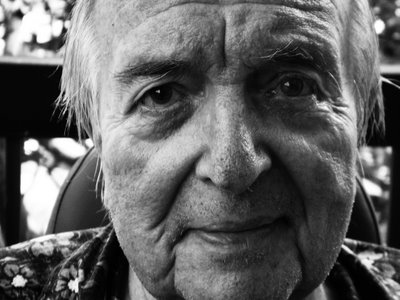
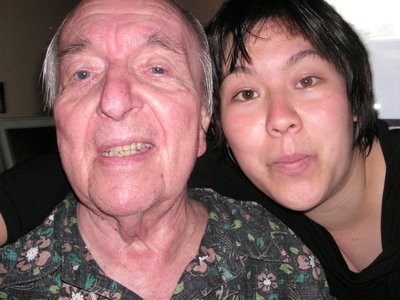

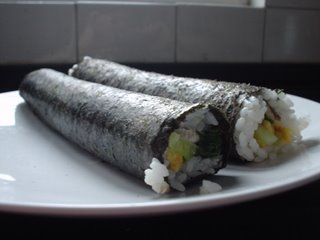
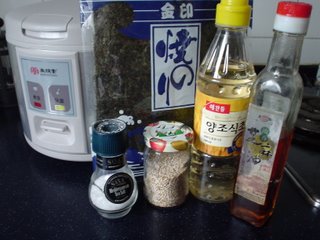

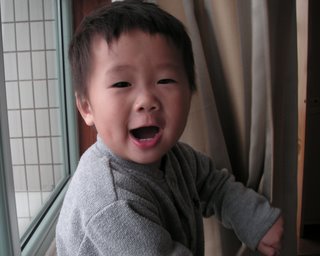
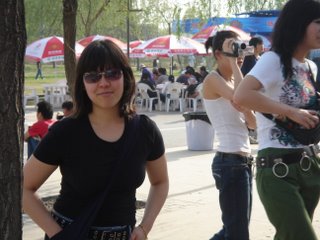
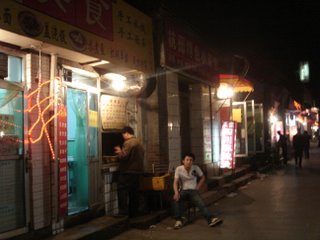

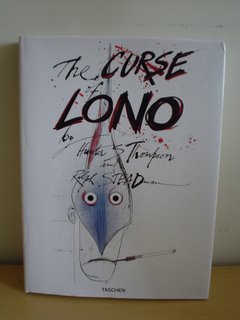 Thursday was my birthday. I am 26 years old. It's a strange feeling realizing that this is my THIRD birthday in China.
Thursday was my birthday. I am 26 years old. It's a strange feeling realizing that this is my THIRD birthday in China.